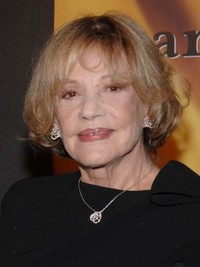Jeanne Moreau

Jeanne Moreau was the sort of talent that could generate hyperbolic labels like "the world's greatest actress," which was how no less an authority than Orson Welles described her. For a half-century, Moreau constantly set the bar for screen performances with her fearless, deeply emotive and passionate turns in such bona fide classics as "Elevator to the Gallows" (1958), "Jules and Jim" (1960), "The Trial" (1961), "Diary of a Chambermaid" (1964), "The Bride Wore Black" (1968), "Querelle" (1982) and countless others. The list of legendary directors who queued up to add her earthy sensuality and versatility to their films included figures like Welles, François Truffaut, Louis Malle, Rainer Werner Fassbinder, Wim Wenders, Luc Besson and Tony Richardson. But despite the quality of her performances, Moreau was largely unknown to mass audiences, especially in America, where she was generally regarded as an art house figure. More mainstream moviegoers knew her as Cinderella's great-granddaughter in "Ever After" (1998) than for "Jules and Jim." If the anonymity bothered Moreau, it never showed; she simply continued to give life-affirming performances well into her eighties while dabbling in work behind the camera on several occasions. Moreau was one of the few actresses whose work remained consistently top-notch for the entirety of her career, with bit parts and cameos as well-crafted as her leading roles. In doing so, she cemented her status as one of the cinema's greatest actors. Her death at the age of 89 on July 31, 2017 brought forth international mourning, with French President Emmanuel Macron eulogizing her as a powerful figure who "always rebelled against the established order."